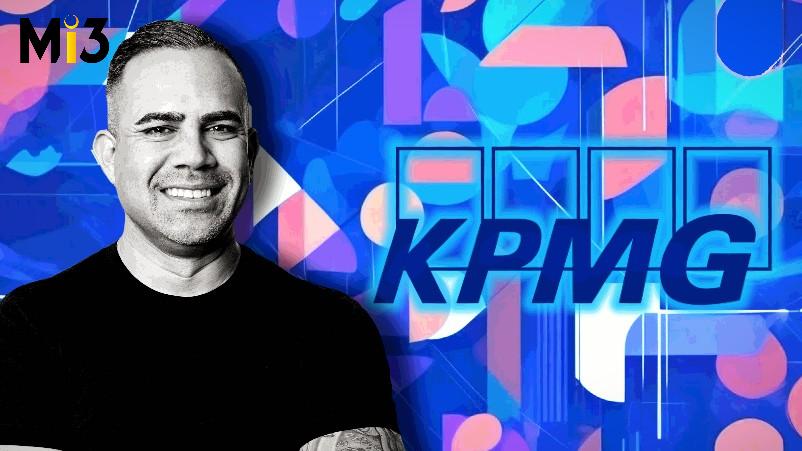KPMG taps customer lead Sudeep Gohil to head marketing, prepares AI, brand campaigns to sidestep PwC fallout, differentiate from consulting rivals

Big four fallout
Anecdotal reports that PwC’s tax leak scandal has been concerning rival big four consulting groups around negative perceptions of the sector – and revenue hits – was all but confirmed this week by KPMG’s first partner-level marketing role for the firm, Sudeep Gohil.
Gohil, who joined KPMG six years, has led the brand strategy and creative services units of the firm and has now taken on the effective role of CMO.
“There’s definitely be an impact [from PwC]. Where we felt the impact is just in general around the role of the big four in Australian business, the nature of the work that we do and calling it into question,” he told Mi3. “The truth of the matter is the big four are not all the same.”
Gohil’s task is to prove it.
That starts with a tactical plan to differentiate against competitors in AI with a campaign due to launch shortly. A KPMG brand-led effort will follow – and Gohil says it’s needed.
“We’ve got a lot of work to do on our brand – but it’s not an opportunity to go in and make heaps of ads. We’re a B2B business. We know exactly who our audience is. We know exactly how to talk to them. The challenge is, it’s a complex organisation and there’s a big gap between what our customers think of us – so anyone that’s worked with KPMG within two years versus people or non-clients – there’s a big gap between what those that know us and those that don’t know us actually think of us. So the opportunity really is to get clever and smart around that gap, closing that gap, helping people understand more.”
While putting some distance between itself and its competitive set.
If KPMG doesn’t proactively define itself in market and what “we stand for, how we can help people, then we get defined by the industry as a whole,” Gohill told Mi3.
“So if one person in the big four does something untoward, then it kind of affects everyone. And if you’re not a distinct brand or a distinct business, then you’ll cop it just as much as the others, even if that’s unfair.”
95-5 rule
B2B marketing norms typically focus on demand and lead generation. But Gohil is taking the idea spawned from the Ehrenberg-Bass Institute and the LinkedIn-backed thinktank, the B2B Institute, of creating longer-term “future demand” for KPMG with the 95-5 rule. That rule asserts that only 5 per cent of customers are in market to buy at any one point so marketing obsessing mostly about finding buyer leads now is counterproductive. Instead, focus on building demand in the 95 percent of B2B customers that will, eventually, come to market with longer term brand messaging.
KPMG has bought in.
“It’s a firm-wide effort to try and create a bit of differentiation between us and the others in the big four because for the most part, the brand of the ‘big four” is arguably stronger than any of the individual brands within the big four. That’s problematic,” Gohil said.
He said consulting companies are notoriously quiet on the work they do. But that may be about to change – there’s appetite across the business to better tell KPMG’s story, per Gohil.
“A traditional B2B marketing approach to doing this probably doesn’t do us any favours,” he said. “I think we need to broaden the aperture a little bit and actually think about those buyers in their normal lives and how do we have normal conversations with them, rather than getting too obsessed about B2B techniques.
“That doesn’t mean that we’re not going to be connecting all of our sales and marketing – our funnel – all together, it’s not that at all. But it’s taking a step back and going ‘who are these people as individuals, what motivates them and how can we get them to think about us differently, which ultimately is the same thing you do with a consumer brand.”
In other words, treating the buyer group as humans.
AI race
KPMG’s work and AI program was an early priority for creating differentiation against Deloitte, EY and Accenture
“Everyone broadly is talking about AI – the big four and Accenture as well,” he said. “So using opportunities like that to talk about something that is relevant to the market is one avenue that we’re looking at. Eventually we’ll have to come to turn the focus more squarely on us as a business, and actually think about, well, you know, what is our brand? We have a global line which is ‘KPMG make the difference’. The challenge for us in the Australian market is what is the difference that we make? And leaning into that and actually explaining it, talking about the case studies and feeling a little bit more comfortable about that. I’ve had conversations with people in our customer team, people in defence, a whole range of people across the business and they’re going we’re proud of the work that we do and would like to tell our story more broadly,” said Gohill.
“That’s going to be part of my responsibility – to help the business figure out how do we tell those stories and how do we get the brand out there a bit more.”





